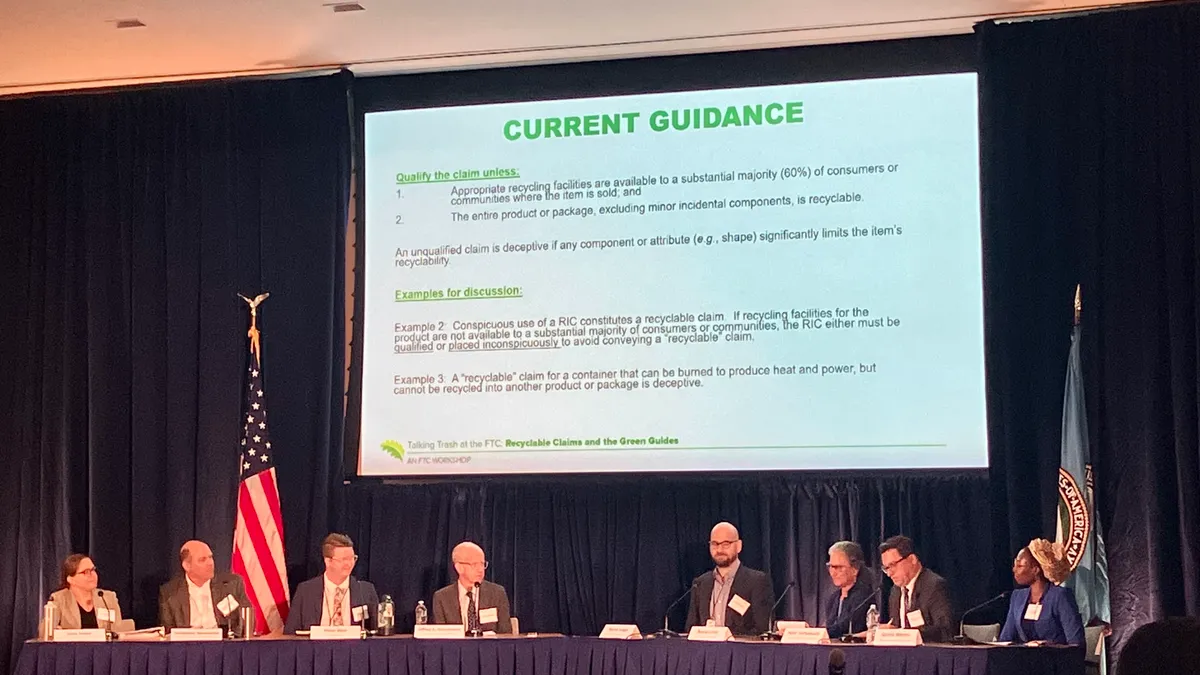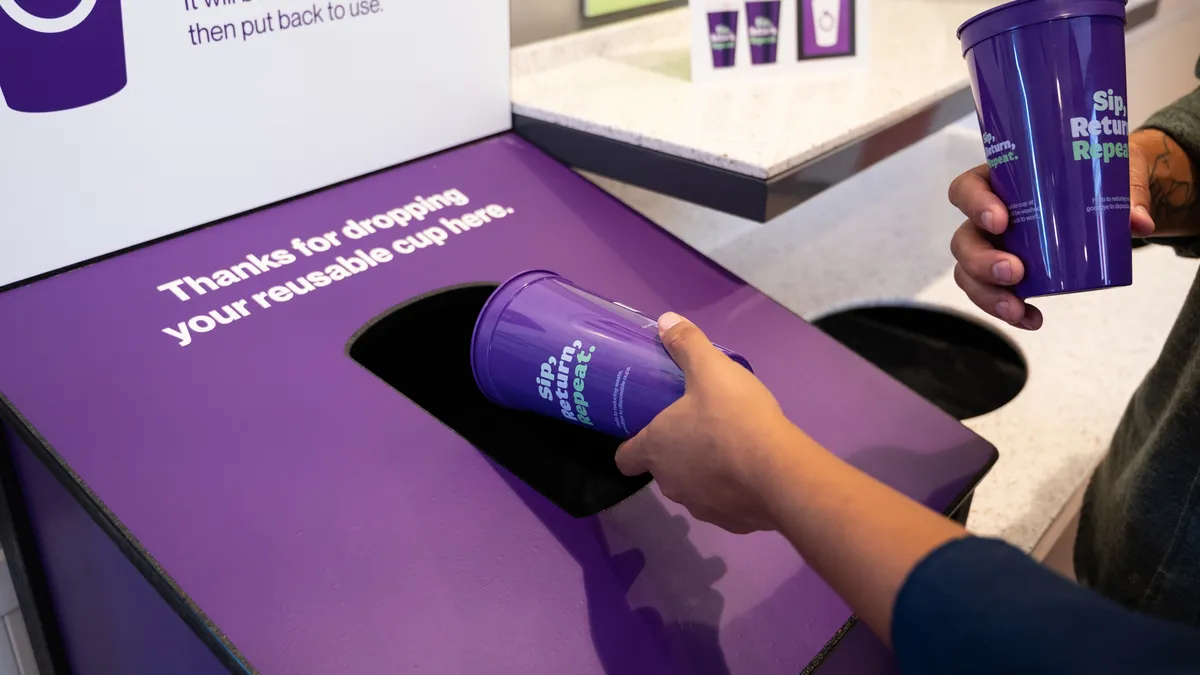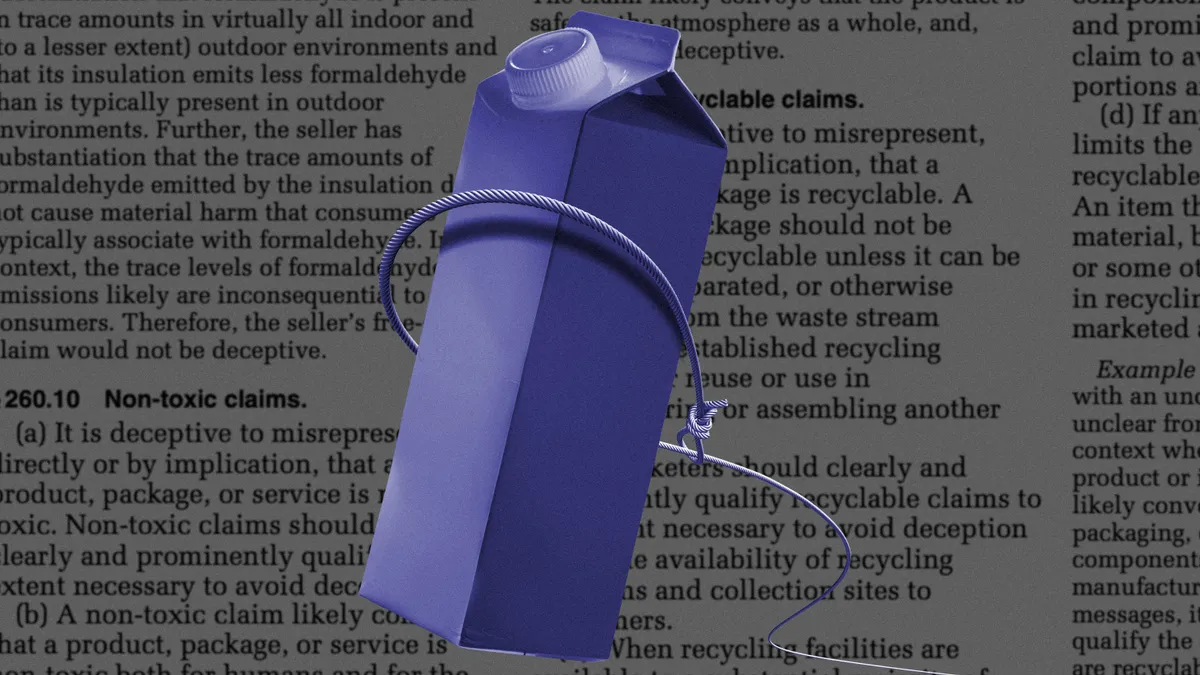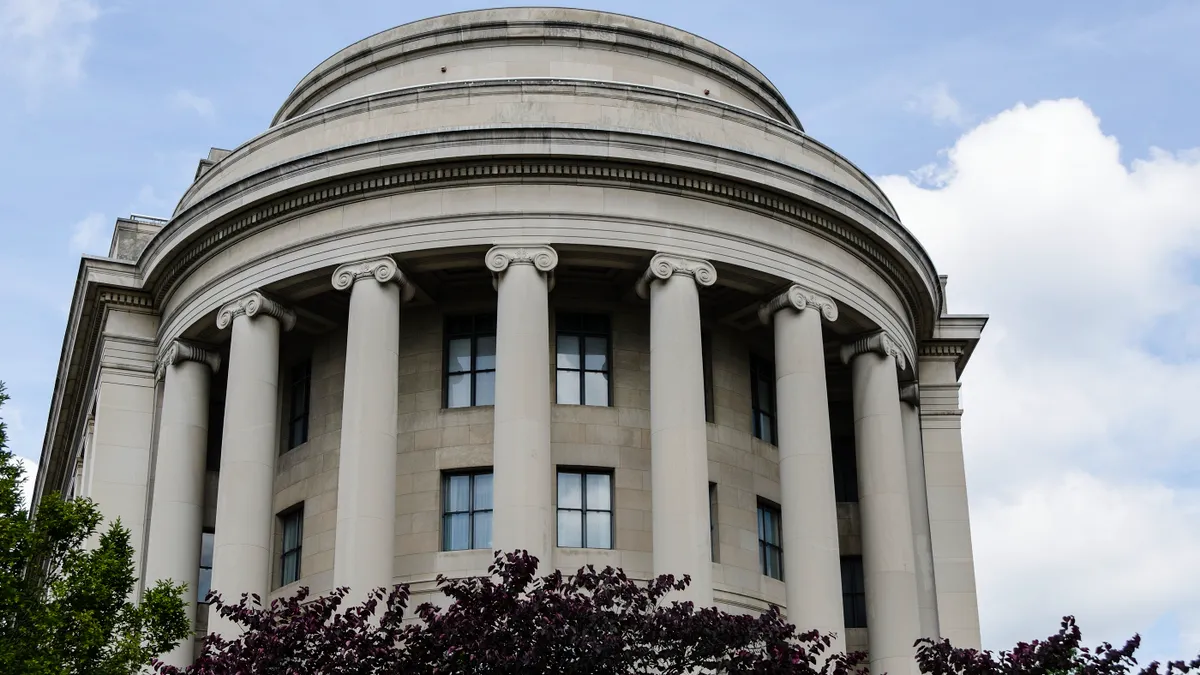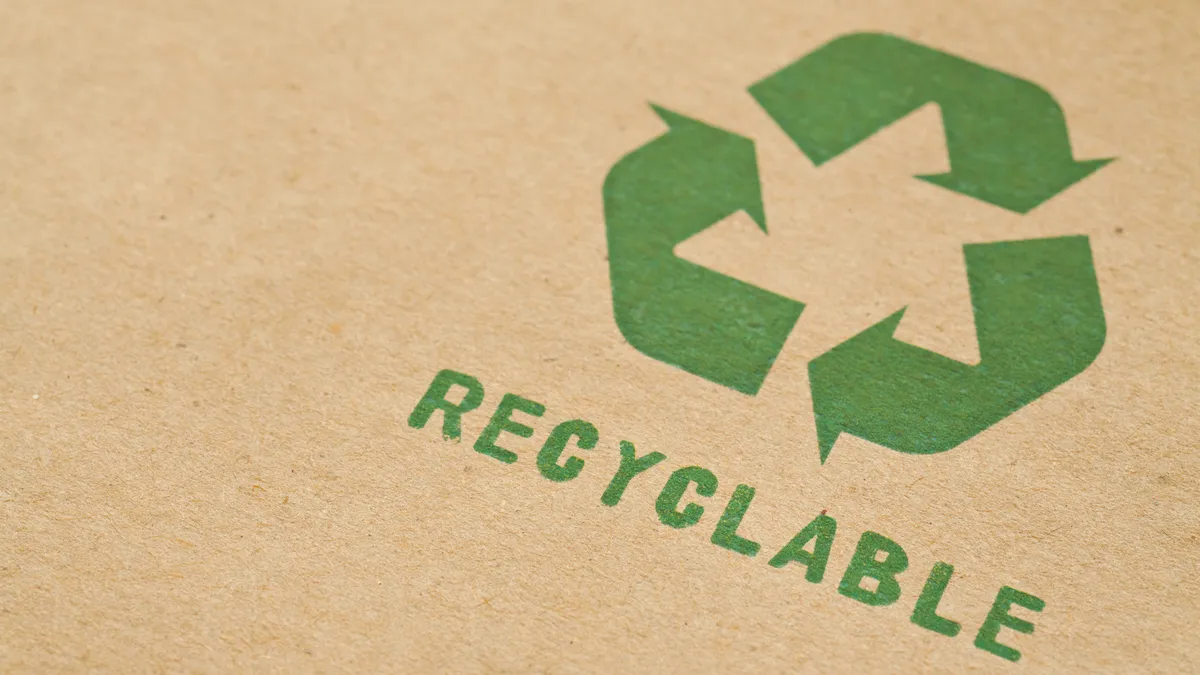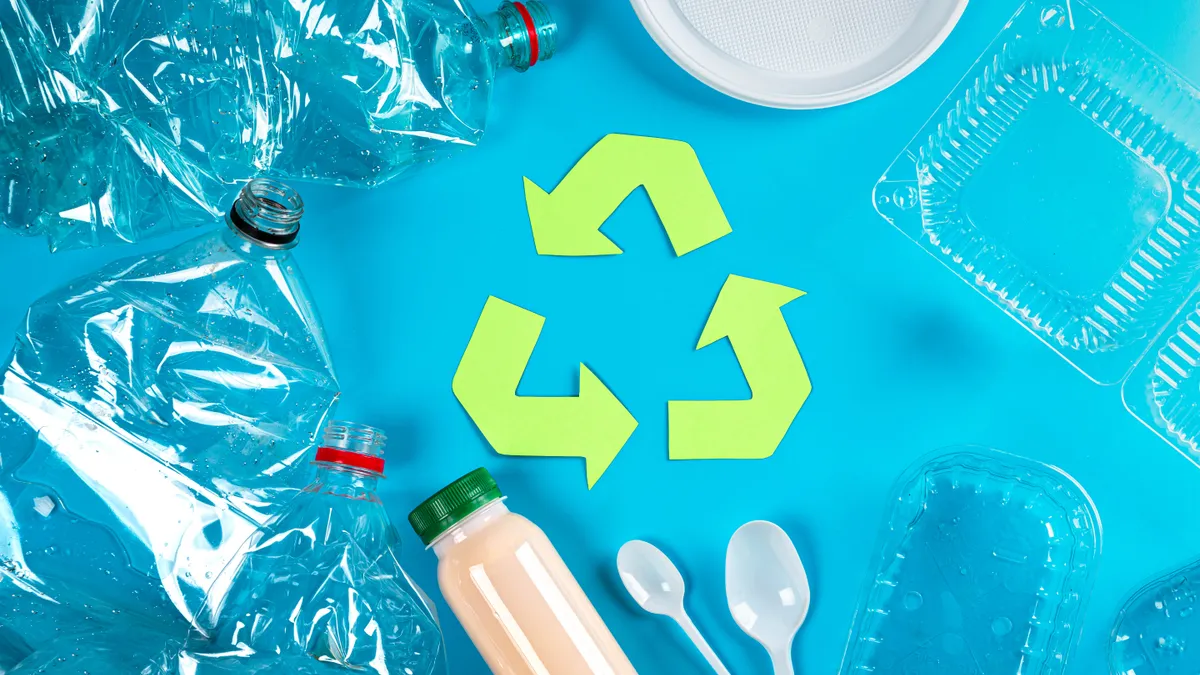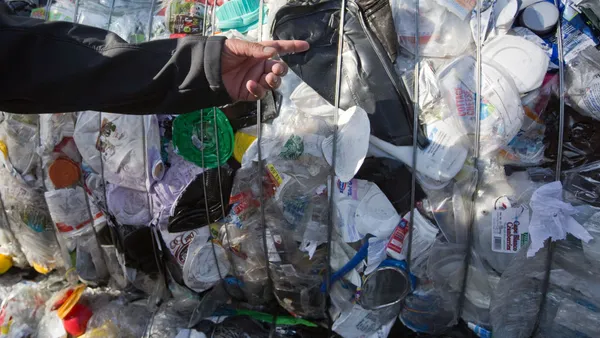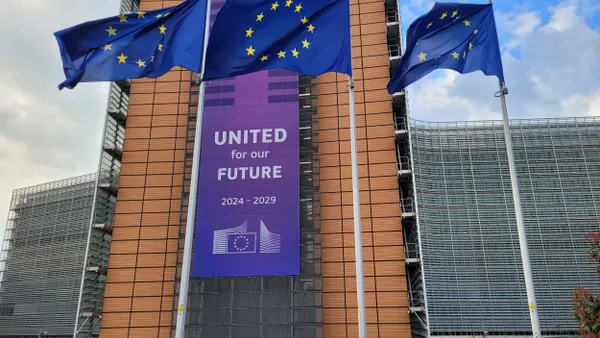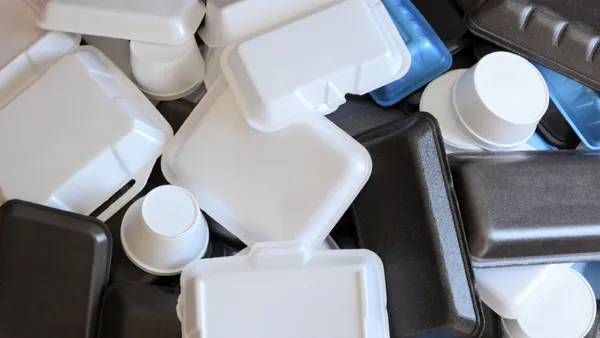A Federal Trade Commission workshop in Washington, D.C., about updating guidance regarding environmental marketing claims — including those often made on packaging — highlighted a lack of consensus on hot-button topics such as the role of chemical recycling and whether to pursue rulemaking to provide more nationalized policy.
Tuesday’s “Talking Trash” workshop featured panels with experts from industry associations, NGOs, states and municipalities. The half-day event covered the current landscape of the recycling market and recycling-related advertising claims, consumer perception of such claims and the future of the Green Guides — specifically the need for any updates or changes related to such claims. “We want to be influenced,” the FTC’s associate director of the enforcement division, Jim Kohm, said at the outset.
FTC moderators and panelists pondered at what stage of the process consumers consider “recycling” of a product to have occurred — ranging from dropping an item in the bin to it being transformed into a new version of the original product — and whether the ultimate environmental benefit is important when considering recyclability claims.
The 60% threshold
Currently, the Green Guides state that marketers should qualify recyclable claims when recycling facilities are not available to at least 60% of consumers or communities where a product is sold. The 60% level is deemed a substantial majority. FTC is assessing whether there is evidence to support adjusting that threshold.
That analysis must be data-driven, said Peter DePasquale, vice president of government affairs for Keurig Dr Pepper, who encouraged looking more closely at what raising that threshold would achieve. Analysis would include assessing the environmental impacts from reduced contamination and a cleaner stream, as well as the potential positive or negative effects from pushing more products to qualify claims, he explained. DePasquale said what is really needed, regardless of the exact threshold level, is greater guidance to marketers on substantiating claims.
Raissa Lerner, a deputy attorney general in the environment section of the California Department of Justice, raised the potential importance of tracking how much of the recycling stream is successfully processed.
“I think that's where the guides could be more specific and clear ... it has to be on the marketer or manufacturer making a claim. If you're making a claim that it's recyclable, then make sure that it is all the way through. That means that [if a] consumer puts it in the bin, it has a route,” Lerner said, rather than recycling being “one more stop on the way to the landfill.”
“That's the problem that we're seeing,” particularly with plastic packaging, she said. “That's where people are deeply confused and where marketing labels are taking advantage of that confusion, to hit people's feel-good button.”
Chemical recycling
FTC officials said many comments so far have indicated advanced, molecular or chemical recycling — processes that, broadly speaking, break plastics down from polymers into monomers to be built up again — as emerging technologies to consider.
Kate Bailey, chief policy officer at the Association of Plastic Recyclers, noted that not all plastics can today be recycled in a mechanical recycling system, “especially not back into food-grade quality.” Chemical recycling is one of the newer technologies for consideration amid today’s “nexus of policy, infrastructure, investment and new technologies,” she said.
Karen Hagerman, the director of How2Recycle at GreenBlue, described chemical recycling as “a massively complex topic” that can be challenging to assess in the current understanding of recycling access. “I think when we discuss chemical or advanced recycling, we talk about it as a monolith when it’s actually a diversity of technologies,” Hagerman said.
Patrick Krieger, vice president of sustainability at the Plastics Industry Association, said the group calls for chemical recycling to be considered recycling. Others were more cautious about chemical recycling’s level of advancement and how it could be perceived in different ways by environmentally conscious consumers.
“Chemical recycling is not yet here,” said Anne Germain, chief operating officer and senior vice president of regulatory affairs for the National Waste & Recycling Association. Regarding potential future claims about these processes, NWRA is concerned about claims being deceptive to the public, “because we already have to struggle with [people feeling] that their recycling isn't being made into new products, or people don't believe that recycling is really happening.”
“We want to be as transparent as possible to make sure that what gets recycled into new products, people understand is getting recycled into new products,” Germain continued. If items are instead being turned into a fuel source, people would want to know that. “But regardless of that, it's something that I would say is still in the infancy — it's not here yet,” Germain said. Brian Hawkinson, executive director of recovered fiber at the American Forest & Paper Association, also cautioned that oversimplifying chemical recycling could ultimately mislead consumers.
Peter Blair, policy director at nonprofit Just Zero, said context is important. Consumers see recycling as an environmental benefit, he said, but chemical recycling could increase pollution or harm environmental justice communities.
Rulemaking and national standardization
The Green Guides, while influential, remain no more than guides. Many stakeholders yearn for greater enforcement and national unity on policy — especially as more states individually take action on these issues — while others worry that rulemaking could be too prescriptive amid changing technology.
States’ roles in some of these issues came up at the workshop. Speakers brought up California’s SB 343, which is poised to raise the bar for the use of recycling marketing symbols, and noted Connecticut’s lawsuit filed against Reynolds Consumer Products last year over alleged deceptive marketing of Hefty “recycling” bags.
Just Zero’s Blair said the organization strongly believes FTC should promulgate national rules. Issues that vary by state, like rules about resin identification codes, could be preempted by national policy, he noted. Quinta Warren, associate director of sustainability policy at Consumer Reports, also said that rulemaking is needed.
Those against rulemaking worried about market evolution during the 10-year span between Green Guides updates. KDP’s DePasquale noted the potential for “static regulation.” Plastics’ Krieger said FTC could add more clarity and enforcement before rising to the level of rulemaking; he previously noted the potential for FTC to issue warning letters as one option.
As for national systems more generally, APR’s Bailey noted momentum around a potential national labeling system to standardize recycling instructions. “The burden should not just be on companies that do make something recyclable, it should also be on companies that do not make something recyclable, to help keep those materials out of the stream.”
Germain said NWRA would like qualified claims to be nationalized, so long as a universal symbol is used consistently across the country. “If it becomes widely utilized, we think it could be effective,” she said.
The FTC’s process of soliciting feedback on Green Guides updates continues. The agency is again calling for public comments, until June 13, following the receipt of more than 7,000 comments in a previous docket.



